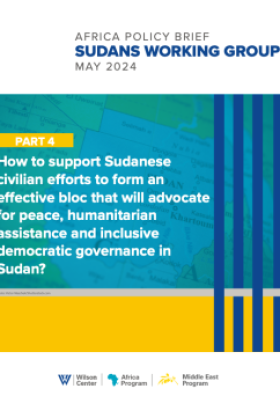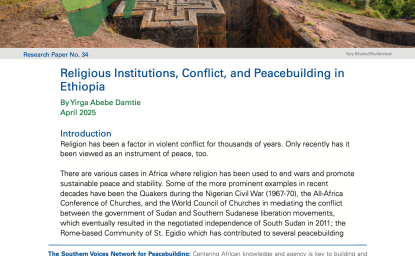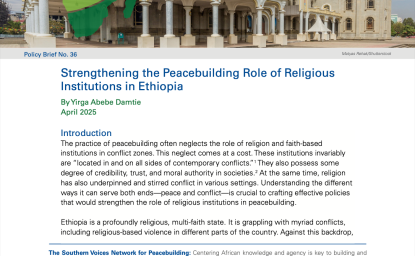How to support Sudanese civilian efforts to form an effective bloc that will advocate for peace, humanitarian assistance and inclusive democratic governance in Sudan?



Civil conflicts have been resolved in two ways, military victory or via a negotiated settlement. A major criticism of negotiated settlements is that the combatants reach agreement among themselves for their own benefit and the civilian population that must live with the outcome have no say in it. Another criticism is that peace deals between armed actors tend to be pauses in hostilities as underlying grievances remain unresolved and/or ambitions unfulfilled. The proposed answer to these shortcomings of negotiated settlements is to include independent civilian participation in the negotiations in order to give any resulting agreement greater popular support/legitimacy.
The fourth session focused on the recent efforts of civilian representatives to agree on principles that would unite them in advocating for cessation of hostilities, promoting an effective response to Sudan’s humanitarian crisis and charting a path toward inclusive, civilian, democratic governance of Sudan.

Africa Program
The Africa Program works to address the most critical issues facing Africa and US-Africa relations, build mutually beneficial US-Africa relations, and enhance knowledge and understanding about Africa in the United States. The Program achieves its mission through in-depth research and analyses, public discussion, working groups, and briefings that bring together policymakers, practitioners, and subject matter experts to analyze and offer practical options for tackling key challenges in Africa and in US-Africa relations. Read more


Middle East Program
The Wilson Center’s Middle East Program serves as a crucial resource for the policymaking community and beyond, providing analyses and research that helps inform US foreign policymaking, stimulates public debate, and expands knowledge about issues in the wider Middle East and North Africa (MENA) region. Read more

Explore More
Browse Insights & Analysis
Religious Institutions, Conflict, and Peacebuilding in Ethiopia

Spying on Poachers

